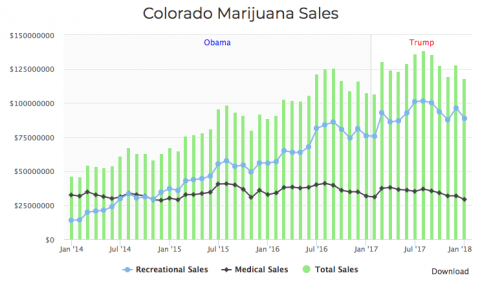Baron23
Well-Known Member
Colorado: New marijuana edibles regulation goes into effect Oct.1: What to expect
As study reports on infused products and child safety, Cannabis industry stresses strides the industry is making to protect youth, points to exceptional safety record.
The Cannabis Business Alliance (CBA) has released a statement in response to the recent study by the University of Washington Cannabis Law & Policy Project “Concerning Cannabis-Infused Edibles: Factors that Attract Children to Foods.”
“Once the Cannabis industry enacts regulation of shapes, we can safely claim that between child-resistance, prohibited advertising of cartoon characters, opaque packaging, and warning statements, that Colorado infused products manufacturers are doing more than any other industry to make edibles less appealing to kids while maintaining colors and flavors that do appeal to the adult markets we serve,” noted Cannabis Business Alliance Executive Director Mark Slaugh.
“We also strongly support Mendez and Singer in their conclusions that more research and data is needed to ensure current regulations are effective before trying to tweak them. We are, after all, less likely to be accidentally ingested by kids than dish detergent packets, diaper rash cream, and even alcohol-infused chocolates. Since marijuana is non-toxic like some of these other substances, we are proud of our industry members who help set the standard in caring for and participating in a socially responsible industry that puts child safety above profits understanding that many of our customers are responsible parents who keep edibles away from their kids. It is remarkable that over 5 million infused product units are sold each year with very few and, indeed, diminishing cases of accidental ingestion. A strong indication that we are doing the right thing,” Slaugh continued.
CBA maintains that banning legal edibles or regulating edibles out of existence merely pushes a safe, regulated, taxable industry with professionally produced, lab-tested products packaged in childproof packaging into the Black Market where homemade edibles with no testing or limits on potency and no required packaging become a much more dangerous situation for children.
Colorado’s rules for infused products mandate that the products cannot be shaped like animals, or be in packaging designed to appeal to children. Beginning Oct. 1, regulations require all packaging as well as cannabis-infused products be marked with the specific symbol. Recent regulations also prohibit edibles manufacturer from buying commercial non-infused products and spraying them with hash oil, as the average consumer or child would not be able to tell the difference between a medicated and unmedicated products. CBA stresses that adults must keep Cannabis products safely out of the reach of children, and educate youth on the dangers of underage consumption. The Alliance also calls for more research on the issue.
As study reports on infused products and child safety, Cannabis industry stresses strides the industry is making to protect youth, points to exceptional safety record.
The Cannabis Business Alliance (CBA) has released a statement in response to the recent study by the University of Washington Cannabis Law & Policy Project “Concerning Cannabis-Infused Edibles: Factors that Attract Children to Foods.”
“Once the Cannabis industry enacts regulation of shapes, we can safely claim that between child-resistance, prohibited advertising of cartoon characters, opaque packaging, and warning statements, that Colorado infused products manufacturers are doing more than any other industry to make edibles less appealing to kids while maintaining colors and flavors that do appeal to the adult markets we serve,” noted Cannabis Business Alliance Executive Director Mark Slaugh.
“We also strongly support Mendez and Singer in their conclusions that more research and data is needed to ensure current regulations are effective before trying to tweak them. We are, after all, less likely to be accidentally ingested by kids than dish detergent packets, diaper rash cream, and even alcohol-infused chocolates. Since marijuana is non-toxic like some of these other substances, we are proud of our industry members who help set the standard in caring for and participating in a socially responsible industry that puts child safety above profits understanding that many of our customers are responsible parents who keep edibles away from their kids. It is remarkable that over 5 million infused product units are sold each year with very few and, indeed, diminishing cases of accidental ingestion. A strong indication that we are doing the right thing,” Slaugh continued.
CBA maintains that banning legal edibles or regulating edibles out of existence merely pushes a safe, regulated, taxable industry with professionally produced, lab-tested products packaged in childproof packaging into the Black Market where homemade edibles with no testing or limits on potency and no required packaging become a much more dangerous situation for children.
Colorado’s rules for infused products mandate that the products cannot be shaped like animals, or be in packaging designed to appeal to children. Beginning Oct. 1, regulations require all packaging as well as cannabis-infused products be marked with the specific symbol. Recent regulations also prohibit edibles manufacturer from buying commercial non-infused products and spraying them with hash oil, as the average consumer or child would not be able to tell the difference between a medicated and unmedicated products. CBA stresses that adults must keep Cannabis products safely out of the reach of children, and educate youth on the dangers of underage consumption. The Alliance also calls for more research on the issue.




